#if i get ulcers on top of everything else i guess the universe will let me know it'll only let me be left with no peace or dignity
Text
.
#emetophobia cw //#but u ever just lie there with bile and acid still high in your throat and mind racing at 10000 mph and every second is a searing year#and you're just tired enough not to have a name for it but hyperalert enough to be aware of every bodily sensation that comes with it#and only is it after going through a feverish nap wake cycle for 3 and a half hours that you realize#oh#im panicking. im having an anxiety attack?#love to see it! :) love to be it love how the creeping panic got so normal i only recognized it when i got this nauseous with it#i thought i could get back to where i was 2 weeks ago mentally with rest but honestly#it's just getting worse and i feel like i'm going to implode with this build up#i just have to hang on until wednesday but that's so far away and im so nauseous and i have been for over a week#i can't remember what it feels like to not be viscerally aware of my own stomach twisting constantly#if i get ulcers on top of everything else i guess the universe will let me know it'll only let me be left with no peace or dignity#and not to get angsty teen on my own sideblog but communication as a whole feels so painful for some reason#no one made it that way it's just this perception and i feel sick no matter what happens and it's maddening#so I'll read other people's words and press little green buttons and wait for wednesday desperately#but I mustn't put all my eggs in one basket either... but i don't want to forget my own urgency#i never remember to tell doctors how bad things felt at their worst#goddamn emotional impermanence and anxiety when facing health professionals#rllntnd#rereading the ending i was vague i just mean i wanna reblog sad text posts from sun up to sun down
3 notes
·
View notes
Text
FAVES and FAILS: The Vampire Diaries
So I have decided that since The Vampire Diaries has a spin off, The Originals, I am going to divide the characters based on where they appeared the most. So on this list I will be talking about the Salvatores, the Petrova/Gilbert line, the Bennets and Caroline, etc. but I will discuss the Mikaelsons, Hayley, etc. on their own list with the other characters that appeared on The Originals mostly. As always, spoilers are abound as I will discuss storylines and character arcs below, so be warned of that. In any case, here’s my FAVES and FAILS for The Vampire Diaries.
FAVORITE MALE CHARACTER: Damon Salvatore

Could it be anyone else? I don’t think so. He’s a delightful little sociopathic shit and I love everything about him. He is 99% id and 1% ego, if that, and even when I hated him, I loved him (god, I sound like Elena…). In any case, love this man, five stars, would recommend, chef’s kiss.
LEAST FAVORITE MALE CHARACTER: …I think Matt Donovan…?
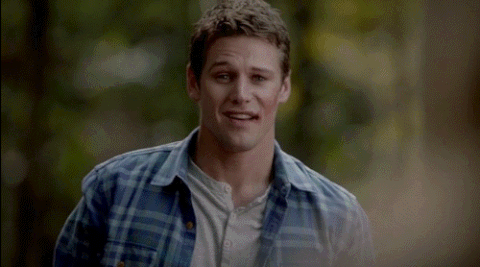
Ugh, it’s hard to pick between Matt, Tyler, and Jeremy, but I think it has to be Matt. I never enjoyed his judgey attitude against everything supernatural, he seemed pretty whiney most of the time, and he was just genuinely uninteresting for the majority of the show. Not into it. Pass.
FAVORITE FEMALE CHARACTER: Katherine Pierce (Katarina Petrova)

I thought about giving this post to Caroline by default, but if it comes down to it, Katherine nudges her way into the top spot. Katherine gave no fucks, knew what she wanted and was unapologetic about how she went about getting it, and an all around bad bitch. Was she primarily evil? Yes. But, to be honest, it never really bothered me.
LEAST FAVORITE FEMALE CHARACTER: Bonnie Bennet

God, this woman was annoying. She was hypocritical, judgmental, and far too holier than thou for me to swallow her bullshit. She constantly played favorites with Caroline and Elena (I’m sorry, you hold Caroline becoming a vampire against her for like two seasons, but when Elena becomes one, it’s not her fault? Sure.). She hated all supernatural creatures because they “go against nature”, but it’s totally chill for you to perform sacrificial magic to get what you want, unleashing a terrible evil in the process (but it’s not her fault). How she nearly excommunicated Caroline just because she stayed with Stefan after Stefan killed Enzo, as if it was her fault in any way. How everyone treated her like she was a special little unicorn because she’s a Bennet Witch and she’s so magical, like, please, gag me. I could go on, but I honestly cannot be bothered. Hard pass.
THE CHARACTER THAT DESERVED BETTER: Caroline Forbes

She was essentially shunned by all of her friends and family for becoming a vampire, even though she didn’t choose to become one at all. Also, she was basically used as collateral damage for the entire Salvatores and Gilberts versus The Mikaelsons debacle just because Klaus liked her. She was always the second choice no matter what the situation was (unless it’s her being impregnated with magical twins without her consent and then guilted into carrying the babies, but poor Alaric just lost his wife. I’m sorry, unless it’s your uterus, shut the fuck up). I’ll just be over here doing what exactly NO ONE on the show did, and pick Caroline first.
DEADWEIGHT CHARACTER WE SHOULD’VE DUMPED IN 2009: Tyler Lockwood
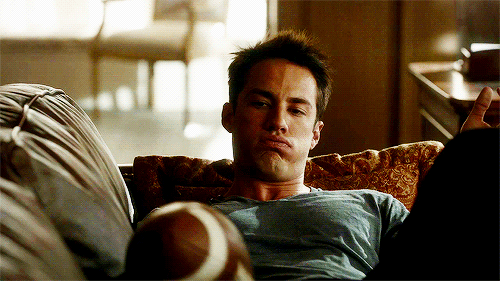
I couldn’t pick Matt twice, so Tyler, I guess. He was selfish, a terrible boyfriend to both Caroline and also Liv later, and if I have to hear that boy whine about his fucking sire bond one more time I will literally throw my laptop off of a bridge.
UNDERHYPED CHARACTER: Lorenzo “Enzo” St. John
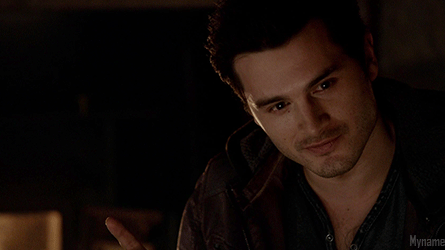
Honestly, he’s one of the one things that made the last few seasons of the show bearable. His delightful British rogue was a lovely way to fill the void that the Mikaelsons left in my heart, his devil-may-care attitude was man-made-manifest of what I was always thinking while watching the show, his BFF relationship with Damon and later Caroline was a joy to watch, and he was way too good for Bonnie.
OVERHYPED CHARACTER: Alaric Saltzman
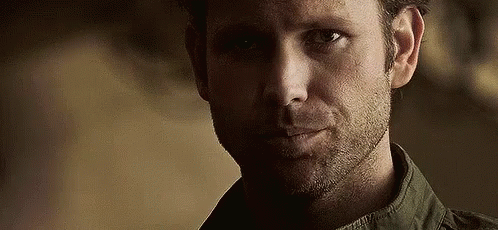
He is marginally more bearable right now on Legacies, but he annoyed the shit out of me while he was on the first show. Does he hate vampires or is he best friends with them? Does he want to be a hunter or does he want to stay away from anything supernatural of any kind? Also, he (along with nearly everyone else) basically guilted Caroline into carrying his magical siphoner babies, which is a touch too icky for me…
SHIP YOU WOULD SELL YOUR SOUL FOR: Delena (Damon and Elena)
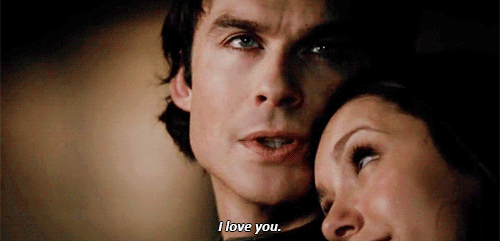
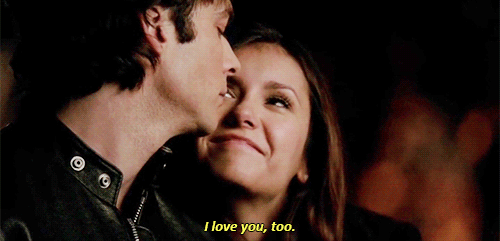
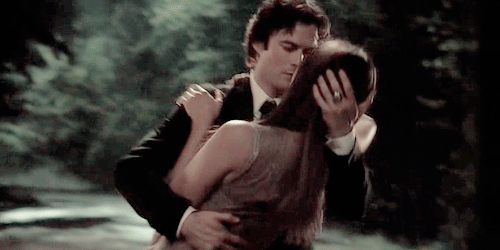
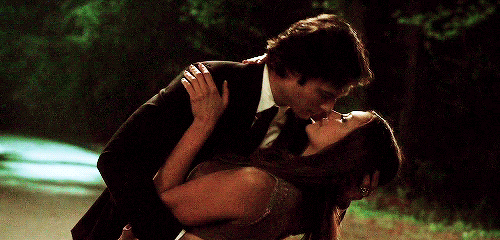
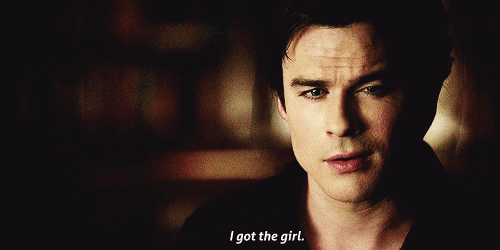
Could it be anyone else? I never shipped Stelena, as I found both Stefan annoying and Elena too woe-is-me while she was with him. She made Damon want to be a better person and he made her embrace who she really was, monster and all. They had a perfect balance between themselves, and it was a joy to watch. He got the girl, guys.
SHIP YOU JUST WERE’N THAT INTO: Steroline (Stefan and Caroline)

They were just too…meh. I was entirely uninterested in them, whatsoever, and isn’t that even worse than a ship that you hate? I used their scenes for a bathroom break or to get a snack, as I was guaranteed to miss nothing interesting or important while they were on screen.
CHARACTER YOU LOVE TO HATE/FAVORITE VILLAIN: Kai Parker
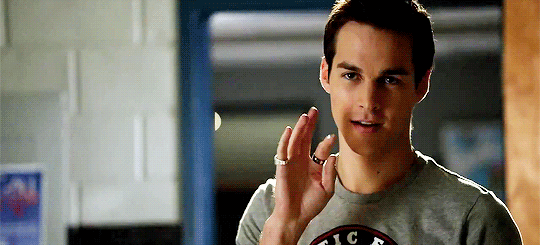
What does it say about me that all of my favorite characters are violent psychopaths…? I’m just going to leave that to be unpacked with the future therapists I’m bound to hire. Kai was the perfect evil. He was powerful, purposeful, and unapologetically demonic in the very best way. I could watch him terrorize my favorite characters forever and not get bored. Perfection.
FAVORITE STORYLINE: Stefan and Damon’s Brotherhood


If you don’t think this is what the show was about at it’s core, you’re wrong. They loved each other, they hated each other, they died for each other, they killed for each other, and, ultimately, they let nothing and nobody come between them. If you asked me who Damon loved more, Elena or Stefan, I COULD NOT answer you, and isn’t that just the fucking point?!
STORYLINE WE COULD’VE DONE WITHOUT: Magical Babies
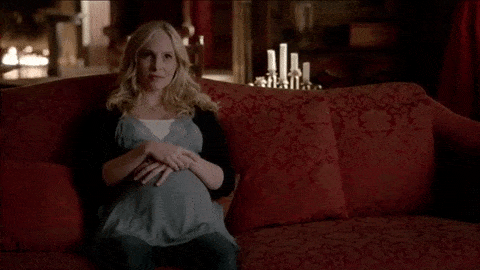
I know that a major reason this was even a storyline is because Candice Accola got pregnant, but still…how? Like…she is a vampire..? She is unable to biologically change…? Like can someone grab me a biology textbook and explain how this a thing that can happen BIOLOGICALLY, please? I get that they are mythical creatures, so science doesn’t mean much here, but it just doesn’t make sense in any universe. Also, as I said above, the fact that Caroline was impregnated without her consent and then largely guilted into carrying the babies is a touch too rape-y for me…
BIGGEST PLOTHOLE: Do they go to school, or…?

Like, are they just compelling the teachers to not notice them not attending class like 90% off the time? Also, how do the people in Mystic Falls not know anything about the supernatural? Like, they aren’t subtle AT ALL so how do they keep sliding under the radar? Also, in a lesser way, how are hybrid witch/vampires a thing? Like, I thought if a witch dies (like they would have to if they become a vampire), they lose their magic…?Make it make sense, Julie!
MOST HEARTBREAKING MOMENT: Damon Dies (the first time)
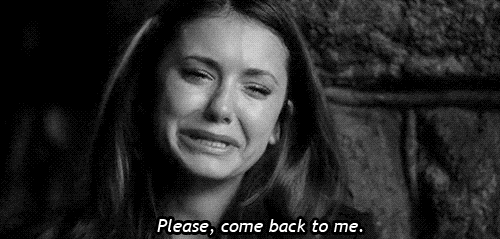
Honestly one of the saddest moments in the entire series was Damon’s ghost watching Elena lose it when he doesn’t make it back from the Other Side. They were finally happy and together and they can only enjoy it for like five minutes before it goes to shit. Why, Julie??!
BIGGEST EYEROLL MOMENT: Magical Babies (again)
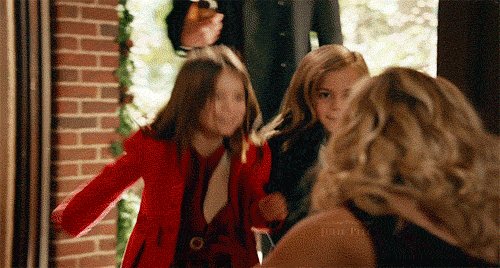
I try to not use something twice on this list but COME ON. This was ridiculous and I do not support this in any way. (Also this twin bullshit is still fucking annoying on Legacies, if anyone was wondering).
MOST SHOCKING MOMENT (any spit-takes?): Elena forces Kathrine to take The Cure

This was one of the moments that I literally gasped aloud. Most of the time the foreshadowing on these shows is seen from miles away, but I honestly did not see this coming at all. Also, Kathrine was basically the LAST person who wanted that cure so it’s crazy that she was the one to end up taking it and turning human.
MOST BADASS MOMENT: Kathrine kisses Damon at the end of Season 1

Like I said before, she is the original BAD BITCH of the show (not an actual Original, but you know what I mean…) and this was an amazing entry for the character who would be, largely, the villain of the series. It played on the feelings that Damon is developing for Elena, it finally introduced the person who started it all for the Salvatores, and it showed us exactly who she is at her core, and that she isn’t sorry about it at all.
SERIES FINALE SATISFACTORY LEVEL (use no words, just gifs):



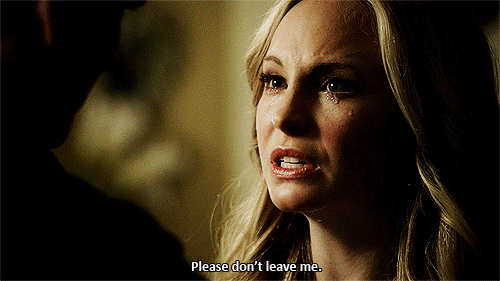

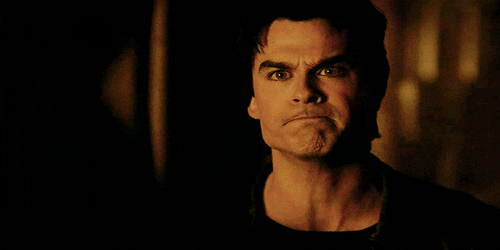


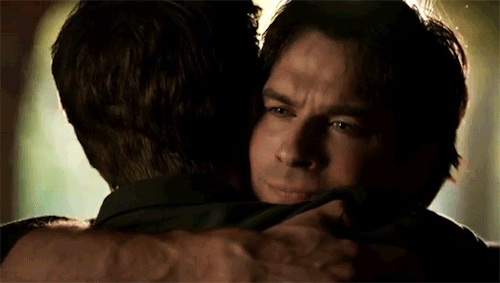
OVERALL MARKS OUT OF TEN (10 being this show has changed your life for the better, you happily rewatch the series over and over, and the show has made your life better in some way. 1 being this show gave you nothing but trust issues, a stomach ulcer, and high blood pressure, and you honestly do not know why you did this to yourself)
7 out of 10.
I look back on The Vampire Diaries with the kind of fondness that only comes from a bizarre mix of nostalgia and incredulity. When scenes from this series show up on my instagram feed or on my Youtube recommended page, an involuntary smile creeps across my face without me realizing. I could do without like half of the characters and some entire seasons were completely unnecessary to watch, but it gave me some of my very favorite characters and ships, and spawned an entire universe that I still enjoy to this day. This magical, crazy, beautiful world was a joy to experience, even when it made me want to beat my head against a wall at least once per season.
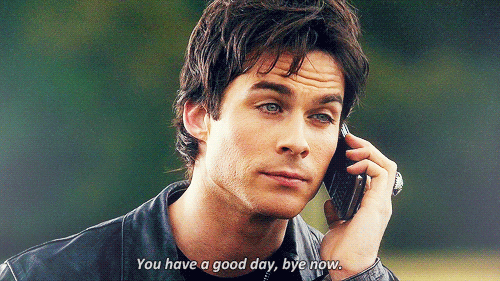
If you want to see the other ones I have made, here's the original post with links. x Hope you like these! (I say to probably no one...)
#The Vampire Diaries#TVD#Vampires#Damon Salvatore#Stefan Salvatore#Damon and Stefan#Elena Gilbert#Damon and Elena#Delena#Caroline Forbes#Bonnie Bennet#enzo st. john#werewolves#magic#witches#the CW#fandom#ships#I ship it#shipping#tv shows#favorite#Katherine Pierce#Katerina Petrova#Matt Donovan#Tyler Lockwood#Jeremy Gilbert#Salvatore#hello brother#gifs
15 notes
·
View notes
Note
What do you think of the recent news about the story of Half Life?
I feel like the tide is turning hard and fast on Valve these days. The timing of this certainly doesn’t help. Valve is no longer a software company. They are bleeding talent that worked on some of their biggest, most critically acclaimed work.
And the fact that they are bleeding this talent is important. Valve is not a company that you should just walk away from. Erik Wolpaw once told a story about a flare-up of ulcerative colitis that made him miss months of work. Valve paid for all the hospital expenses and even gave him full paid leave. Gabe Newell told him “Your job is to get better. That is your job description at Valve. So go home to your wife and come back when you are better.” They didn’t have to do that, but they extended the ultimate in generosity to keep him happy, healthy, and employed at Valve.
So when Erik Wolpaw leaves Valve, that’s not a decision I’m sure he came to lightly. Even though Marc Laidlaw, Erik Wolpaw, and Chet Faliszek all left and said there was no bad blood, they are putting the golden goose back in the pen and saying “Naw, I’ve got somewhere else to be.”
That’s a reflection on what Valve is, and what Valve will become going forward.
Valve has, essentially, infinite money. And not only do they have infinite money, but they’re constantly looking for solutions to avoid hiring more employees. They’d rather figure out a way to make the community do all the work for them, so they can kick back and go for a swim in their Scrooge McDuck money bins.
In a lot of ways, it’s starting to feel very reminiscent of the trend you see on Kickstarter. The big important game developer promises you everything you’ve ever hoped or dreamed for, they get millions of dollars, go over-budget, miss deadlines, and ultimately under-deliver. We saw it with Broken Age, we saw it with Mighty No. 9, we saw it with Yooka-Laylee, we’re seeing it with Shenmue 3 and most likely Bloodstained (which, after three years in development, is apparently only 20% complete). It’s less that these guys have lost their touches and more that they have the freedom to do whatever they want, and whatever they want turns out to be beyond reasonable budgets.
Take Broken Age: when Tim Schafer pitched the Kickstarter, he thought they’d do a short, simple adventure game, like the very first Maniac Mansion. No voice acting, not even HD visuals. The final Broken Age was so expensive it had to be broken in to two separate halves, with the sales of Broken Age 1 funding part 2.
I think it was in their Yooka-Laylee video, but Stop Skeletons From Fighting brought up a wonderful clip from behind the scenes of The Incredibles, where Brad Bird is arguing for a big, impressive, and most importantly time consuming and expensive action scene to cap the movie off. If Brad Bird had total creative freedom he would do that scene without a second thought, but since he was working for Disney, he had a producer on hand pushing back against it. Brad, in his own words, wanted to do “something cool” and the producer wanted it “on time and on budget” – and ultimately, that clash lead to a fantastic final product, because limitations foster creativity. Unchecked freedom can just make a very costly mess, which is a trap many of these high-profile Kickstarters are falling in to.
Valve gets around some of that because their money hose doesn’t stop gushing. They don’t even have to put out software anymore – Valve takes a deep cut of every DOTA 2 International tournament prize pool, which this year raised $24,000,000. Roughly half of that gets funneled back in to Valve, every year, until the day DOTA 2 stops being interesting. On top of the 30% of every sale on Steam. On top of them ramping up the tournament scene in CS:GO in the last two years with the same tactics that filled DOTA 2 with money. Valve clearly has more cash than they know what to do with.
But what has that gotten us?
A failed deal with Adult Swim for Valve to produce Team Fortress 2 shorts as a TV series. Only one episode was ever finished and released (Expiration Date), which reportedly took something like a whole year (or more) to put together. Using a piece of software Valve built themselves, and is intimately familiar with. When fans, using that same piece of software, routinely produce a significantly greater volume of work at nearly professional standards, and often by single-person teams working alone (there’s even a yearly film festival about this exact thing). The best Valve could muster was a single episode, despite reportedly employing more than 200 people.
Two, the Steam Controller. Valve custom-built an entire assembly line factory with their own money to produce Steam Controllers after nearly two years of private and public R&D. It failed to set the world on fire, because in order to use it, it requires you to unlearn basically everything you’ve ever known about game controllers. It is the DVORAK of gamepads, catering to a very narrow audience of people who either forced themselves to like it or grew up knowing nothing else.
Three, are Steam Machines, which is really just a nebulous PC spec that doesn’t seem to have really stuck around or gone anywhere at all.
Four, SteamVR (The Vive), which is prohibitively expensive and requires a minimum amount of space in order to work that most people apparently do not have. Cool if you’re rich enough to afford any of that, but I don’t think very many can right now.
And five, a DOTA 2 collectible card game that seems to exist only because Valve saw how much money Blizzard was making with Hearthstone, and they decided to make their own version of that.
Not exactly the greatest pedigree to have after a high point like Portal 2. So much for Valve’s “make something interesting, and if it’s cool enough it’ll eventually come out.” mantra.
How many projects like Half-Life 2 Episode 3 were left on the cutting room floor? Forgotten about if for no other reason than the person working on it got pulled away to help crunch for a TF2 update, or producing The International, or something else? Only to, weeks or even months later, come back and realize they don’t remember where they left off. But who cares, right? If it wasn’t cool enough, then you can just work on something else. Nobody’s going to stop you. Wheel your desk somewhere else and start over on whatever catches your interest that week.
What happened to F-STOP? The idea that was reportedly going to make up Portal 2 but ended up being abandoned because it was “too good.” That was more than six years ago. They spent one whole year prototyping F-STOP and we haven’t heard a peep about it since (unless they planned to have a whole section in Portal 2 where you play a DOTA 2 card game, I guess).
Valve has really backed themselves in to a corner, here. I am a massive Valve fanboy, and they just seem like a really hard company to root for these days. Between their hands-off approach to Steam curation, their slavish dedication to gargantuan esports profits over all else, and now the man who literally invented the Half-Life universe more or less saying, “This is how I wanted that story to end, because they might not ever tell you” …it’s just… probably about as close to a worse case scenario you could get for that company. And for once, you can’t point fingers at a greedy publisher, or a failed merger, or any kind of corporate man in a business suit. Valve controls their own destiny, and are the only ones to blame for the monster they’ve let themselves become.
255 notes
·
View notes
Text
Yet another emotional outburst.
I’ve bottled up too much again.
I lost a lot of weight and I’ve almost gained it all back but the problem is I haven’t allowed myself to go to the gym or run because I don’t want to encourage disordered habits because I’m rather close to a relapse into my eating disorder and I just really don’t want that.
But in choosing not to exercise I was choosing to allow myself to lose the progress I had gained on living a happier life because the endorphins I would get from exercise would help me deal with depression/anxiety and so I was living a much happier life.
On top of that it’s Thanksgiving weekend and I hate Thanksgiving because not only is it a holiday surrounded of large amounts of food consumption but Dad left on thanksgiving and so it kind of makes the season difficult because the notion that your own father can walk out on you the day you’re supposed to be celebrating your life and family hurts a lot and speaks volumes for what I must have meant to him. I can’t even go home for thanksgiving with my family because my kitten is sick and so she’s contagious to my cats at home and that makes it all so much harder.
University is in full motion again yet I’m still stuck in the motivation level I was at the end of last semester and that did’t exactly end too well. I need to do good but I don’t think I’m cut out for university nor do I think I’m in any way smart enough to be trying to do this. I don’t even know what I’m majoring in anymore let alone what I want to be so I’m just wasting money on a bunch on English courses that won’t do me much good in the long run.
And the worst part of it all is I feel so alone. Mum was right when she said everything would be different. I didn’t believe her at the time but now I understand. I am completely on my own. I love living on my own and I’m very glad I made this decision but I have nobody. Everyone has someone else, or they have roommates or have made it clear I was only in their life due to other people. The realization that I am nobodies important person is kind of painful... I get up, go to class for 50 minutes, come home and do nothing. My life has just become a loop of obligations, eat. class. eat. netflix. eat. netflix. sleep. eat, class. etc. I’m alone all the time, and quite honestly I could easily disappear and it would take a few days for people to notice. The worst part is one of the people I considered my closest friends barely acts like we exist anymore and personally I just find it rather hurtful even though I know he doesn’t mean for it to be and there is a rational reason for it but knowing that doesn’t make it less hurtful. I just really feel defeated in life rn. I like being alone and all but it’s to the point where I hate it and I just want a hug.
I hate attention. I hate people noticing when I’m not okay and more than anything I hate expressing how I feel because it makes me feel vulnerable. I guess that’s why I always just have outbursts on here. Logically, I know people care about me, but I don’t feel it. I don’t know why I don’t. I don’t know why I can’t reach out to people and make plans or just start a conversation. I don’t know why I can’t ask my friend if he’s okay bc I feel like he isn’t. I don’t know why I can’t function like a normal person and do normal people things without scrutinizing every detail of what I did.
I adopted a kitten two weeks ago but even that isn’t going to well... she’s been sick since I got her, first vomiting and blood that apparently was just her being stressed and now she has a “cat cold.” and that requires medication twice a day and eye drops three times a day and it’s hard because she hates it and makes it really hard to do and is resentful about it. She struggles and they told me that I had to be careful with the eye drops because touching her eye with it could end up with an ulcer and she was fighting the drops and I think I touched her eye and she’s squinting randomly and I’m just a horrible pet owner...
4 notes
·
View notes
Text
Podcast: Smoking Weed for Anxiety – Fact vs Fiction
Cannabis, weed, marijuana, pot. It goes by several names, but we all know what it smells like. As weed becomes more mainstream, we on the Not Crazy podcast want to know: Is marijuana really an effective treatment for anxiety? Is it just a coping mechanism? Or a vice? In today’s podcast, Gabe and Jackie look at the research and weigh out the evidence. They also interview Eileen Davidson, a rheumatoid arthritis patient who regularly uses marijuana as a medicine to see what she has to say.
What’s your take? Tune in for an open-minded discussion about weed.
(Transcript Available Below)
SUBSCRIBE & REVIEW
About The Not Crazy Podcast Hosts
Gabe Howard is an award-winning writer and speaker who lives with bipolar disorder. He is the author of the popular book, Mental Illness is an Asshole and other Observations, available from Amazon; signed copies are also available directly from Gabe Howard. To learn more, please visit his website, gabehoward.com.
Jackie Zimmerman has been in the patient advocacy game for over a decade and has established herself as an authority on chronic illness, patient-centric healthcare, and patient community building. She lives with multiple sclerosis, ulcerative colitis, and depression.
You can find her online at JackieZimmerman.co, Twitter, Facebook, and LinkedIn.
Computer Generated Transcript for “Anxiety- Smoking Weed” Episode
Editor’s Note: Please be mindful that this transcript has been computer generated and therefore may contain inaccuracies and grammar errors. Thank you.
Announcer: You’re listening to Not Crazy, a Psych Central podcast. And here are your hosts, Jackie Zimmerman and Gabe Howard.
Gabe: Welcome to this week’s episode of the Not Crazy Podcast. I’d like to introduce my co-host, Jackie.
Jackie: And that guy is my co-host, Gabe.
Gabe: And today we are going to be talking about. I’m not even sure what to call it. It’s been known as marijuana. It’s been known as cannabis. It’s been known as wacky tobaccy, if you go back to like my grandparents. I guess pot is the street name now.
Jackie: You sound like so, Grandpa Gabe, right now. You’re like, what are the kids calling it these days?
Gabe: Well, just
Jackie: It’s weed, Gabe. We’re talking about weed.
Gabe: But I mean, it used to be grass. It has had a prolific number of slang names. I mean, sincerely. Right?
Jackie: Yes, that is true.
Gabe: And I went to a dispensary the other day and I was like, hey, I’m here to buy pot and they’re like cannabis, sir? And I was like, well, weed. And they’re like, marijuana, sir? So I think that there is some attempt to make a demarcation between slang terms of marijuana and non-slang terms of marijuana. Is that what you’re seeing out in the world, Jackie?
Jackie: I think it depends on where you are obtaining said marijuana, right? If you’re purchasing it from a store, they’re like, yes, we sell marijuana here. If you’re going to the corner, you’re probably going to buy some weed. I think it just depends on where you’re getting it. Same stuff, different name.
Gabe: And this is not unusual, especially in America. Language is always evolving and different generations have different terms for different things. Remember when sick meant like you were sick and cool meant you were a bad ass? Now sick means that you’re a bad ass. And if you say cool, kids just look at you like you’re just, you’re just stupid.
Jackie: Which is like how I’m looking at you right now, because the more you talk just the older you sound. Low key, you sound like a real old guy right now.
Gabe: I love how you use low key, another slang term that I am not familiar with. But moving on to the topic at hand, marijuana is everywhere and depending on what Internet site you’re on. Marijuana is either the magical cure for everything, literally, no matter what problem you have physically or mentally, it can absolutely, unequivocally cure it. Or marijuana is satanic. If you even walk past it, you will murder your entire family. You won’t go to college and your eyes will inexplicably turn red. And our research, Jackie, of course, showed that the truth lies somewhere in the middle.
Jackie: As it does with most things, but what we’re focusing on today specifically is the use of marijuana, weed, pot, grass, reefer, whatever you want to call it in terms of treating anxiety. And I’m really excited to talk about this because this is something that is like polarizing. People either thinks it is like the end all be all, cures anxiety or they’re like, it doesn’t help at all. And you should definitely not use it for anxiety.
Gabe: One of the things that I think about is my Diet Coke habit, I’m gonna go with habit for the sake of today’s show. I have an anxiety disorder. I suffer from a lot of anxiety. And when I get really twitchy and out of sorts and I’m just really stressed out, worried, panic. You know, the racing thoughts start to come in when I’m on the verge of an anxiety attack. I stop everything that I’m doing. I find a fountain machine of Diet Coke, which usually involves going someplace, taking a walk someplace, getting in my car. There’s a whole ritual surrounding me getting a Diet Coke. And I can state unequivocally that when I do this ritual and I’m sitting in the corner and I’m drinking my fountain Diet Coke, my anxiety is relieved 100%. This does not make Diet Coke a cure or a treatment for anxiety. And I think that that might be some of what’s happening with marijuana, because no medical study shows that it’s a treatment for anxiety. And again, medical studies are ongoing. But as of right now, there’s nothing that states that anxiety is cured or treated by marijuana.
Jackie: You’re right. And part of me wants to be like, no, you’re wrong, it totally helps because I think it actually does help a lot of people. The problem is, you know, that I love my stats. The stats do not show this. I actually pulled up three different studies specifically on this topic. One study from 2019 is from The Lancet Psychiatry. It looked at the effects of cannabinoids on mental health for nearly 40 years of research, which is like a lot of research. And their findings basically said there was scarce evidence to support that cannabis helps to improve mental health symptoms. Forty years of research in this one study saying like meh, probably not that helpful. But there was another study in 2018 in Cannabis and Cannabinoid Research, which is like, how is there even a journal dedicated to this? But there is. Sixty two percent of people who use CBD use it for a medical condition. And the top three are pain, anxiety, and depression. So my takeaway on this is we don’t have proof in the science that it works, but we do have proof that people are using it for these reasons and are finding benefit in it.
Gabe: And in some ways, this is a tough one, right? Because I think about the number of people that tell me that I should not take prescription medications for my bipolar disorder because after all, I just need diet and exercise, better sleep hygiene. I just we’ve done so many shows on this. It’s just it makes my little head want to explode. But I still go back to the definition of treatment and cure. And the definition of treatment and cure is not I feel better when I’m done. It actually impacts the disease and puts you in a better place when you’re done. Lots of things make you feel better. Jackie hugging my wife makes me feel better. Having a strong support system makes me feel better. These things are not treatments. They’re encouraged. They’re important. And they may well help you. But I just get really, really anxious. I just get really, really anxious when people are like, oh, I treat my anxiety with this because there’s so many reasons. But let’s touch base on this for a moment. Marijuana in this country is kind of messed up, one dependent on the state that you live in, you might actually be committing a crime. That’s number one. But in every state in our union, there’s multiple types of marijuana. Right? There’s the good growers. There’s the growers that are overseen by the government in the states where it’s legal. And then there’s the person that’s just like randomly growing it. And we don’t know what kind of job they did, what kind of a strain they did, or whether or not they doused it in rat poison. And all of these things are marijuana to the end user. That worries me as well, because there’s no consistency here.
Jackie: I have a lot of feelings about that. Yes. Correct. No consistency given the fact that our government has not legalized it universally, which means that it cannot be regulated universally. Even if it is legal where you are, it automatically means it’s more expensive. So you may still be going to a street dealer regardless. So the consistency factor is definitely an issue. However, cycling back for a minute, while it is not proven that it is an effective treatment, I think that judging by 62 percent of users and everybody else, including a 2017 study in the International Journal of Drug Policy, where people believe that cannabis is an effective way to treat conditions in place of prescriptions for anxiety and depression. What this tells me is in terms of symptoms, management, it can be or it is effective depending on who you talk to. So is it treating anxiety? I don’t know. I don’t have the science, but is it treating the symptoms of anxiety? Yeah, it looks like it does. And are those one in the same? I don’t think that they are. I think that you can have plenty of medications that treat the actual underlying problem and lots of medications that treat the symptoms of the problem.
Gabe: Obviously, I can’t disagree with anything that you just said. However, there have been similar studies on whether or not cigarettes help you cope with anxiety. And the reality is that cigarettes have been studied for a long, long time. And the research shows unequivocally that cigarette smoking actually does not help with anxiety. However, when they asked people if it helps them, they said yes. You line up all of the smokers and you say, Hey, does smoking relieve anxiety? They’re all going to say, yes. The science is very clear that in fact it increases anxiety, but they believe that it’s helpful. This is the problem with self-reporting, right. A lot of people believe that things that are dangerous for them or are actively hurting them are, in fact, beneficial.
Jackie: I don’t know. I feel like there’s some aspect of placebo in this. Where, yes, the stats from the scientists are saying this actually causes anxiety and the people who are using it are saying, no, I feel better after doing it. So who’s right? I don’t think there’s is actually a right and wrong in this, which goes against everything that I normally say because there are science leading one way. But if the person says, I feel better after this, doesn’t it mean that it’s good for that person?
Gabe: Potentially, I think we go back to my Diet Coke addiction. The reality is, is drinking as much Diet Coke as I do could be harmful. I should drink way more water and I should go for more walks and I should call my mom more and I should tell my wife I love her more. Life is personal choices. And when it comes to the legalization of marijuana, from a political standpoint, I think it should absolutely be legal because it’s it’s been found to be no more dangerous for you than smoking or alcohol. And in fact, in some cases, much safer. But moving that aside, to answer the question of somebody suffering from anxiety, should they use marijuana as a treatment? I’m gonna go with no. However, somebody suffering from anxiety, should they use marijuana as a coping mechanism? That’s a personal choice. And Gabe is there. So I sort of feel the one-two punch. You should still get treatment from the medical establishment. But we all have coping skills. Look, people watch Family Guy on repeat to get through the day. That’s just a coping mechanism. But please don’t send me an email and tell me that Family Guy is the treatment for depression because not.
Jackie: I think the root of this whole conversation is we’re just talking about vices, right? Like your vice is Diet Coke. We’re talking about cigarettes and weed and Family Guy. Right? Whatever your vice is. I think we can unequivocally agree that vices help with stress management. Right? That’s why people drink, right? They’re stressed out or they’re angry. They want to erase the feelings that they’re feeling in that moment. That’s why we have vices. That’s what they do for us. But you’re right, you can’t say that like the good outweighs the bad. And all of those vices right? You are consuming a metric shit load of aspartame. Is that good? Probably not. I don’t know, but it makes you feel better. So, you know, are we talking long-term health? Are we talking short term? I don’t think it really matters. Does marijuana help with anxiety? Maybe it could. I don’t know. I think it’s so personal. And I think that, again, we just don’t have enough research at this point to say one way or the other, because even the studies that we’re quoting right now, they’re all looking for different things. They’re looking for is it effective? They’re looking for do people think it’s effective? Are they using it in place of something else? There’s no study that really has touched on all the bases that we have yet in terms of is it effective for this? Is it effective for this in conjunction with prescribed medication? We don’t know. So I guess choose your own adventure as long as you’re smart and healthy and not a dumb dumb.
Gabe: I really just want to hit hard on what Jackie said about the “we don’t know.” There are so many people that just believe that it is the cure for everything. And there’s so many people that believe that it is the most horrible thing. It’s just a pox on our nation. Those are not the two camps that we should be in. We should continue the research. We should find out what is good and what is bad. I just want to be clear that any type of self-medicating is dangerous.
Jackie: A lot of people use this to self-medicate. Self-medicating, we know is dangerous, especially when you’re not being honest with your health care team. So this is one of those things that, you know, if it works for you, that’s great. But don’t force it on anybody else because we just don’t have the research to back that it is actually effective.
Gabe: We’ll be right back after these messages.
Announcer: Interested in learning about psychology and mental health from experts in the field? Give a listen to the Psych Central Podcast, hosted by Gabe Howard. Visit PsychCentral.com/Show or subscribe to The Psych Central Podcast on your favorite podcast player.
Announcer: This episode is sponsored by BetterHelp.com. Secure, convenient, and affordable online counseling. Our counselors are licensed, accredited professionals. Anything you share is confidential. Schedule secure video or phone sessions, plus chat and text with your therapist whenever you feel it’s needed. A month of online therapy often costs less than a single traditional face to face session. Go to BetterHelp.com/PsychCentral and experience seven days of free therapy to see if online counseling is right for you. BetterHelp.com/PsychCentral.
Jackie: And we’re back talking about using marijuana as a treatment for anxiety.
Gabe: Jackie, we’ve talked about the stats, we’ve talked about the study, we’ve bantered back and forth. Let’s talk to somebody who uses marijuana for her anxiety disorder and also for rheumatoid arthritis. Can you give her an introduction? Because she was very candid and very awesome. It was great of her to call in.
Jackie: Yes, sure. We invited our friend Eileen, who we know through advocacy, to come on and talk about why she uses marijuana to help with her anxiety, but also why she uses it for her RA. And I think she’s going to have a lot of helpful insight on this.
Gabe: And we’re going to roll that interview right now.
Jackie: We’re here with our friend Eileen. Gabe and I know Eileen outside in the real world, but we thought she’d be a really great guest to bring on the show today. So welcome, Eileen.
Eileen Davidson: Hi, my name is Eileen Davidson and I live in beautiful Vancouver, British Columbia, which has been worldwide known for longer than it’s been legal in Canada to have very, very good weed.
Gabe: We are so super excited to have you because you are willing to publicly talk about using marijuana or cannabis. Why are you so public about using it? Because in many places it’s still a crime. And even the places where it’s legal, it’s still very much looked down upon. But you’re like, hey, I smoke weed.
Eileen: Well, because I also believe in the medical component of it. I live with rheumatoid arthritis and mental health issues. So to me, it’s very medical. And because I don’t really drink because of my autoimmune disease, it’s also a tiny bit recreational and it’s legal in Canada.
Jackie: Eileen, are there any specific symptoms that you’re using medical marijuana to treat?
Eileen: Yes. So living with a chronic illness comes with multiple different types of symptoms, as well as side effects from the medications used to treat these diseases. So, particularly with rheumatoid arthritis, I have chronic fatigue, consistent chronic pain as well as sometimes nausea. So that is another reason why I actually do enjoy smoking marijuana because it really tackles the nausea and then also helps with the loss of appetite that I can experience. And then it also helps with not being able to sleep because of pain. And it’s helped with a number of the medications that I’ve gone through that have caused vomiting. And so it’s kind of a drug that I don’t use for just one specific thing, but a multitude of different things.
Gabe: I do like that you’re so open about it.
Eileen: I wasn’t always open about it, though. I used to be actually very against marijuana.
Jackie: Ooh, what changed your mind?
Eileen: Debilitating diagnosis of rheumatoid arthritis. So I’ve been around it a lot before because my earliest memories of it are my father smoking weed while doing these creative, surrealistic paintings. My dad was kind of a hippie and so like my childhood is basically memories of the smell of oil paints, marijuana and the sound of Pink Floyd playing to these crazy paintings. So, but it was illegal back then. So I felt very conflicted a lot because I was like, why are you smoking marijuana when that’s supposed to be a drug, as they’re telling you in school? And so I didn’t really understand. I never wanted to touch drugs my whole life. I’ve never touched anything other than coffee, marijuana and alcohol, a little bit of wine, but being diagnosed with something that causes severe pain and having to go through medications that have a lot of side effects. At that time, I was like, well, this is medicinal to me, so I’ll try it. And I felt like an idiot being against it before. My diagnosis really opened my eyes to this isn’t really in the same line as like heroin or cocaine and things like that. Though, I never tried those. And it was also really helping people. People like me who were in diagnosis of cancer, M.S., Parkinson’s, all sorts of things. What I didn’t expect is that it would also help with my mental health.
Jackie: And did you discover that just sort of like happenstance, you were like, oh, I kind of feel good everywhere right now? Or was it more of something that you actually tested? You were like. I’m feeling really anxious. Let’s see if this helps here.
Eileen: I would say it first started off with me noticing that it did have an effect on my mental health. When I first started smoking weed, I didn’t know about THC, CBD and how it would kind of interact with me. So I would try something, not know what kind of strain it is and then kind of feel full-blown anxiety attack. But then I would also try a different one and feel super relaxed. And so I discovered that I had to kind of watch which strains helps with my anxiety and didn’t help with my anxiety and to kind of research so that I could be better informed.
Gabe: So my next question is sort of somewhat of a controversial one, because it sounds like you’re self-prescribed, like a doctor didn’t prescribe this, it’s kind of a trial and error on your behalf, is that correct?
Eileen: Yes. Now, I do follow guidelines of places like the Arthritis Society because they are a wealth of knowledge for people like me who are interested in supplying medical cannabis. But when you have a hook up, it’s also cheaper.
Gabe: As funny as that is, though, do you tell all of your doctors that you’re utilizing cannabis as a treatment or do you keep that on the down low?
Eileen: I tell them, because I think it’s important to be honest with your doctors about every aspect in your health. It’s really important to listen to the patient voice when it comes to their needs. And that’s including their medications. And marijuana can be a medication.
Jackie: So let me ask you this in conjunction with telling your doctors about this. Before you started using weed for anxiety. Were you prescribed medication for anxiety and if so, were they working?
Eileen: Yes, I’ve tried a couple of different medications for anxiety. I did find that they worked. I was on them for a number of years. Medication you won’t find the perfect drug in one-go usually. It’s a number of drugs you have to try. I tried three or four for my anxiety and depression. I tried over 18 for my rheumatoid arthritis. And I don’t know how many strains of marijuana I’ve tried for everything I go through. So that’s what you have to learn. And what works for one may not work for the other.
Jackie: So do you think that it works better for your anxiety than the prescriptions did?
Eileen: No, I definitely don’t think it works better or worse. I think they work together.
Gabe: I really like what you’re saying there, and I don’t know if I agree or disagree, I’m really on the fence about a lot of this stuff, which is one of the reasons that we wanted to interview somebody who is actually utilizing cannabis and marijuana for treatment because we wanted to tell the whole story. But one of the things that I think about so often are the people who are self-medicating, the people who are suffering from bipolar disorder, depression, anxiety, schizophrenia, psychosis, and they run out, they meet somebody on a street corner or in an alley and they buy marijuana and they’re like, oh, look, I’m treating my mental health issues. And that sounds so incredibly scary to me. And I just want to make sure that none of our listeners are hearing that that works. What are your thoughts on that?
Eileen: Don’t ever, ever do that. I’ve seen how that turns out. I know about good people who are at risk for having negative psychoactive effects from marijuana and need to watch out for that. Like I said, if it doesn’t work for you, it doesn’t work for you, but it might work for someone else. So it’s really important to keep an open mind.
Jackie: So I have one more question that’s kind of getting into the specifics. There are a boatload of different ways at this point that you can sort of consume marijuana in the world we live in today. And I’m wondering, have you experimented with this in terms of efficacy for anxiety? Is it better to smoke it or eat it? Is CBD oil the way to go? What is the best way to use this for anxiety that you’ve discovered for yourself?
Eileen: Well, depending on what you’re experiencing with your anxiety, if I just finish something and I need to relax from it, I’ll probably smoke a joint. But if I need to go somewhere where I might be experiencing anxiety and I don’t want to be high, then I’m going to take some CBD oil. But I know my triggers now. I don’t have the negative effects that maybe I had when I first started because I’ve self experimented and also I watch how much I am taking and I take generally pretty good care of myself overall.
Gabe: Eileen, thank you so much for being here, where can folks find you online if they want to learn more about your advocacy because you’re huge in the rheumatoid arthritis community?
Eileen: Well, thank you. They can find me online. I go by Chronic Eileen, which I guess has a little bit to imply with being a chronic. But also chronic illness. So that’s Chronic Eileen, and Eileen is E I L E E N, and they can find me at ChronicEileen.com or Instagram or Facebook or Twitter.
Gabe: Well, we really appreciate you being here. Thank you so much.
Eileen: No problem. Thank you so much for having me.
Gabe: I always love it when we have guests on, Jackie.
Jackie: I do love a good guest. Eileen is awesome. She is a really great advocate online. You should follow her. Everything that she does,
Gabe: Fan girl.
Jackie: She’s a lovely person.
Gabe: Well, Jackie, obviously we picked her for a reason, we know that she’s a great advocate. What did you think of everything that Eileen had to say?
Jackie: I felt like it was really great that Eileen mentioned that not only does she use this, we’ll say off label, non-approved, but she also uses it in conjunction with her medication. This isn’t a replacement for her medication. It helps with her medication and that she’s very honest with her doctors about her usage.
Gabe: I like that she actually used the word recreational at one point because I think that sometimes, advocates for marijuana, they’re so heavily focused on its medical benefits, which there are medical benefits. There aren’t any approved for mental health reasons, but there’s medical benefits approved for physical reasons, physical health reasons. There are so many. I like that she was open about the fact that there’s a recreational aspect. I think it’s a more moderate and realistic and reasonable point of view.
Jackie: Yeah, dude, I mean, sometimes people smoke weed for fun and that’s the only reason why they use it. And for those people who do use it for medicinal reasons, you can’t lie that sometimes it’s still a fun hobby recreationally.
Gabe: One of the things that I want to talk about is something that I just I hear constantly and that’s people saying, well, marijuana can’t possibly be bad for you because it’s all natural. I hear this constantly. All natural, all natural. How can something all natural be bad for you? It drives me insane. And the reason why is because there’s all kinds of all natural things that are very, very, very dangerous. Strychnine is all natural. Poison ivy is all natural. I don’t think anybody listening to our show is going to get buck naked and rub poison ivy all over their body. Because after all, it’s all natural. How bad could it be?
Jackie: You know, I bet if you told people to rub poison ivy on them and they would lose weight, they would do it. Which just goes to show that, yes, something could be natural, but you still have to be a smart person and you still have to use common sense when using whatever that natural substance is.
Gabe: The thing is, I agree with you. And this just shows the level of misunderstanding that we have. I want to be clear, rubbing poison ivy on your body will not make you lose weight at all in any way. Period. Please do not send e-mail to the Not Crazy podcast saying that you did it. I hope that you are paying attention when you listen to this part because it’s very, very important. Bad things occur in nature, just like good things do. The other very, very important part that we want to remind you of is always work with your doctor. Always.
Jackie: Always, always, always. And even if you live in a state where this is illegal right now, when it feels kind of like you shouldn’t tell your doctor about it, you need to, because they need to know these things in order to provide you with the appropriate treatment. And if there’s a part of you that’s worried about telling your doctor, is there a part of you that thinks that this method of treatment is wrong? I don’t know. Maybe that’s something worth figuring out in your head if you’re hesitant to tell your doctor.
Gabe: Jackie, that was a show. Listen up, listeners. If you liked our podcast, please subscribe to it on whatever podcast player you downloaded this show on. And please tell your friends. Share us on social media and use your words. Tell people why you liked it, email it, bring it up in support groups, pass the word around. We’re giving away free stickers. All you have to do is email [email protected], and in the subject line write stickers and we will send them your way. We will see everybody next week.
Jackie: Thanks for listening, everyone.
Announcer: You’ve been listening to Not Crazy from Psych Central. For free mental health resources and online support groups, visit PsychCentral.com. Not Crazy’s official website is PsychCentral.com/NotCrazy. To work with Gabe, go to gabehoward.com. To work with Jackie, go to JackieZimmerman.co. Not Crazy travels well. Have Gabe and Jackie record an episode live at your next event. E-mail [email protected] for details.
Announcer: I’m here to tell you about Industrial Hemp Farms CBD flower. CBD hemp flower is readily available from a number of different sources, but their hemp flower is 100 percent organic. This is farm to table hemp flower. Check them out at Industrial Hemp Farms dot com.
Podcast: Smoking Weed for Anxiety – Fact vs Fiction syndicated from
0 notes
Text
Podcast: Smoking Weed for Anxiety – Fact vs Fiction
Cannabis, weed, marijuana, pot. It goes by several names, but we all know what it smells like. As weed becomes more mainstream, we on the Not Crazy podcast want to know: Is marijuana really an effective treatment for anxiety? Is it just a coping mechanism? Or a vice? In today’s podcast, Gabe and Jackie look at the research and weigh out the evidence. They also interview Eileen Davidson, a rheumatoid arthritis patient who regularly uses marijuana as a medicine to see what she has to say.
What’s your take? Tune in for an open-minded discussion about weed.
(Transcript Available Below)
SUBSCRIBE & REVIEW
About The Not Crazy Podcast Hosts
Gabe Howard is an award-winning writer and speaker who lives with bipolar disorder. He is the author of the popular book, Mental Illness is an Asshole and other Observations, available from Amazon; signed copies are also available directly from Gabe Howard. To learn more, please visit his website, gabehoward.com.
Jackie Zimmerman has been in the patient advocacy game for over a decade and has established herself as an authority on chronic illness, patient-centric healthcare, and patient community building. She lives with multiple sclerosis, ulcerative colitis, and depression.
You can find her online at JackieZimmerman.co, Twitter, Facebook, and LinkedIn.
Computer Generated Transcript for “Anxiety- Smoking Weed” Episode
Editor’s Note: Please be mindful that this transcript has been computer generated and therefore may contain inaccuracies and grammar errors. Thank you.
Announcer: You’re listening to Not Crazy, a Psych Central podcast. And here are your hosts, Jackie Zimmerman and Gabe Howard.
Gabe: Welcome to this week’s episode of the Not Crazy Podcast. I’d like to introduce my co-host, Jackie.
Jackie: And that guy is my co-host, Gabe.
Gabe: And today we are going to be talking about. I’m not even sure what to call it. It’s been known as marijuana. It’s been known as cannabis. It’s been known as wacky tobaccy, if you go back to like my grandparents. I guess pot is the street name now.
Jackie: You sound like so, Grandpa Gabe, right now. You’re like, what are the kids calling it these days?
Gabe: Well, just
Jackie: It’s weed, Gabe. We’re talking about weed.
Gabe: But I mean, it used to be grass. It has had a prolific number of slang names. I mean, sincerely. Right?
Jackie: Yes, that is true.
Gabe: And I went to a dispensary the other day and I was like, hey, I’m here to buy pot and they’re like cannabis, sir? And I was like, well, weed. And they’re like, marijuana, sir? So I think that there is some attempt to make a demarcation between slang terms of marijuana and non-slang terms of marijuana. Is that what you’re seeing out in the world, Jackie?
Jackie: I think it depends on where you are obtaining said marijuana, right? If you’re purchasing it from a store, they’re like, yes, we sell marijuana here. If you’re going to the corner, you’re probably going to buy some weed. I think it just depends on where you’re getting it. Same stuff, different name.
Gabe: And this is not unusual, especially in America. Language is always evolving and different generations have different terms for different things. Remember when sick meant like you were sick and cool meant you were a bad ass? Now sick means that you’re a bad ass. And if you say cool, kids just look at you like you’re just, you’re just stupid.
Jackie: Which is like how I’m looking at you right now, because the more you talk just the older you sound. Low key, you sound like a real old guy right now.
Gabe: I love how you use low key, another slang term that I am not familiar with. But moving on to the topic at hand, marijuana is everywhere and depending on what Internet site you’re on. Marijuana is either the magical cure for everything, literally, no matter what problem you have physically or mentally, it can absolutely, unequivocally cure it. Or marijuana is satanic. If you even walk past it, you will murder your entire family. You won’t go to college and your eyes will inexplicably turn red. And our research, Jackie, of course, showed that the truth lies somewhere in the middle.
Jackie: As it does with most things, but what we’re focusing on today specifically is the use of marijuana, weed, pot, grass, reefer, whatever you want to call it in terms of treating anxiety. And I’m really excited to talk about this because this is something that is like polarizing. People either thinks it is like the end all be all, cures anxiety or they’re like, it doesn’t help at all. And you should definitely not use it for anxiety.
Gabe: One of the things that I think about is my Diet Coke habit, I’m gonna go with habit for the sake of today’s show. I have an anxiety disorder. I suffer from a lot of anxiety. And when I get really twitchy and out of sorts and I’m just really stressed out, worried, panic. You know, the racing thoughts start to come in when I’m on the verge of an anxiety attack. I stop everything that I’m doing. I find a fountain machine of Diet Coke, which usually involves going someplace, taking a walk someplace, getting in my car. There’s a whole ritual surrounding me getting a Diet Coke. And I can state unequivocally that when I do this ritual and I’m sitting in the corner and I’m drinking my fountain Diet Coke, my anxiety is relieved 100%. This does not make Diet Coke a cure or a treatment for anxiety. And I think that that might be some of what’s happening with marijuana, because no medical study shows that it’s a treatment for anxiety. And again, medical studies are ongoing. But as of right now, there’s nothing that states that anxiety is cured or treated by marijuana.
Jackie: You’re right. And part of me wants to be like, no, you’re wrong, it totally helps because I think it actually does help a lot of people. The problem is, you know, that I love my stats. The stats do not show this. I actually pulled up three different studies specifically on this topic. One study from 2019 is from The Lancet Psychiatry. It looked at the effects of cannabinoids on mental health for nearly 40 years of research, which is like a lot of research. And their findings basically said there was scarce evidence to support that cannabis helps to improve mental health symptoms. Forty years of research in this one study saying like meh, probably not that helpful. But there was another study in 2018 in Cannabis and Cannabinoid Research, which is like, how is there even a journal dedicated to this? But there is. Sixty two percent of people who use CBD use it for a medical condition. And the top three are pain, anxiety, and depression. So my takeaway on this is we don’t have proof in the science that it works, but we do have proof that people are using it for these reasons and are finding benefit in it.
Gabe: And in some ways, this is a tough one, right? Because I think about the number of people that tell me that I should not take prescription medications for my bipolar disorder because after all, I just need diet and exercise, better sleep hygiene. I just we’ve done so many shows on this. It’s just it makes my little head want to explode. But I still go back to the definition of treatment and cure. And the definition of treatment and cure is not I feel better when I’m done. It actually impacts the disease and puts you in a better place when you’re done. Lots of things make you feel better. Jackie hugging my wife makes me feel better. Having a strong support system makes me feel better. These things are not treatments. They’re encouraged. They’re important. And they may well help you. But I just get really, really anxious. I just get really, really anxious when people are like, oh, I treat my anxiety with this because there’s so many reasons. But let’s touch base on this for a moment. Marijuana in this country is kind of messed up, one dependent on the state that you live in, you might actually be committing a crime. That’s number one. But in every state in our union, there’s multiple types of marijuana. Right? There’s the good growers. There’s the growers that are overseen by the government in the states where it’s legal. And then there’s the person that’s just like randomly growing it. And we don’t know what kind of job they did, what kind of a strain they did, or whether or not they doused it in rat poison. And all of these things are marijuana to the end user. That worries me as well, because there’s no consistency here.
Jackie: I have a lot of feelings about that. Yes. Correct. No consistency given the fact that our government has not legalized it universally, which means that it cannot be regulated universally. Even if it is legal where you are, it automatically means it’s more expensive. So you may still be going to a street dealer regardless. So the consistency factor is definitely an issue. However, cycling back for a minute, while it is not proven that it is an effective treatment, I think that judging by 62 percent of users and everybody else, including a 2017 study in the International Journal of Drug Policy, where people believe that cannabis is an effective way to treat conditions in place of prescriptions for anxiety and depression. What this tells me is in terms of symptoms, management, it can be or it is effective depending on who you talk to. So is it treating anxiety? I don’t know. I don’t have the science, but is it treating the symptoms of anxiety? Yeah, it looks like it does. And are those one in the same? I don’t think that they are. I think that you can have plenty of medications that treat the actual underlying problem and lots of medications that treat the symptoms of the problem.
Gabe: Obviously, I can’t disagree with anything that you just said. However, there have been similar studies on whether or not cigarettes help you cope with anxiety. And the reality is that cigarettes have been studied for a long, long time. And the research shows unequivocally that cigarette smoking actually does not help with anxiety. However, when they asked people if it helps them, they said yes. You line up all of the smokers and you say, Hey, does smoking relieve anxiety? They’re all going to say, yes. The science is very clear that in fact it increases anxiety, but they believe that it’s helpful. This is the problem with self-reporting, right. A lot of people believe that things that are dangerous for them or are actively hurting them are, in fact, beneficial.
Jackie: I don’t know. I feel like there’s some aspect of placebo in this. Where, yes, the stats from the scientists are saying this actually causes anxiety and the people who are using it are saying, no, I feel better after doing it. So who’s right? I don’t think there’s is actually a right and wrong in this, which goes against everything that I normally say because there are science leading one way. But if the person says, I feel better after this, doesn’t it mean that it’s good for that person?
Gabe: Potentially, I think we go back to my Diet Coke addiction. The reality is, is drinking as much Diet Coke as I do could be harmful. I should drink way more water and I should go for more walks and I should call my mom more and I should tell my wife I love her more. Life is personal choices. And when it comes to the legalization of marijuana, from a political standpoint, I think it should absolutely be legal because it’s it’s been found to be no more dangerous for you than smoking or alcohol. And in fact, in some cases, much safer. But moving that aside, to answer the question of somebody suffering from anxiety, should they use marijuana as a treatment? I’m gonna go with no. However, somebody suffering from anxiety, should they use marijuana as a coping mechanism? That’s a personal choice. And Gabe is there. So I sort of feel the one-two punch. You should still get treatment from the medical establishment. But we all have coping skills. Look, people watch Family Guy on repeat to get through the day. That’s just a coping mechanism. But please don’t send me an email and tell me that Family Guy is the treatment for depression because not.
Jackie: I think the root of this whole conversation is we’re just talking about vices, right? Like your vice is Diet Coke. We’re talking about cigarettes and weed and Family Guy. Right? Whatever your vice is. I think we can unequivocally agree that vices help with stress management. Right? That’s why people drink, right? They’re stressed out or they’re angry. They want to erase the feelings that they’re feeling in that moment. That’s why we have vices. That’s what they do for us. But you’re right, you can’t say that like the good outweighs the bad. And all of those vices right? You are consuming a metric shit load of aspartame. Is that good? Probably not. I don’t know, but it makes you feel better. So, you know, are we talking long-term health? Are we talking short term? I don’t think it really matters. Does marijuana help with anxiety? Maybe it could. I don’t know. I think it’s so personal. And I think that, again, we just don’t have enough research at this point to say one way or the other, because even the studies that we’re quoting right now, they’re all looking for different things. They’re looking for is it effective? They’re looking for do people think it’s effective? Are they using it in place of something else? There’s no study that really has touched on all the bases that we have yet in terms of is it effective for this? Is it effective for this in conjunction with prescribed medication? We don’t know. So I guess choose your own adventure as long as you’re smart and healthy and not a dumb dumb.
Gabe: I really just want to hit hard on what Jackie said about the “we don’t know.” There are so many people that just believe that it is the cure for everything. And there’s so many people that believe that it is the most horrible thing. It’s just a pox on our nation. Those are not the two camps that we should be in. We should continue the research. We should find out what is good and what is bad. I just want to be clear that any type of self-medicating is dangerous.
Jackie: A lot of people use this to self-medicate. Self-medicating, we know is dangerous, especially when you’re not being honest with your health care team. So this is one of those things that, you know, if it works for you, that’s great. But don’t force it on anybody else because we just don’t have the research to back that it is actually effective.
Gabe: We’ll be right back after these messages.
Announcer: Interested in learning about psychology and mental health from experts in the field? Give a listen to the Psych Central Podcast, hosted by Gabe Howard. Visit PsychCentral.com/Show or subscribe to The Psych Central Podcast on your favorite podcast player.
Announcer: This episode is sponsored by BetterHelp.com. Secure, convenient, and affordable online counseling. Our counselors are licensed, accredited professionals. Anything you share is confidential. Schedule secure video or phone sessions, plus chat and text with your therapist whenever you feel it’s needed. A month of online therapy often costs less than a single traditional face to face session. Go to BetterHelp.com/PsychCentral and experience seven days of free therapy to see if online counseling is right for you. BetterHelp.com/PsychCentral.
Jackie: And we’re back talking about using marijuana as a treatment for anxiety.
Gabe: Jackie, we’ve talked about the stats, we’ve talked about the study, we’ve bantered back and forth. Let’s talk to somebody who uses marijuana for her anxiety disorder and also for rheumatoid arthritis. Can you give her an introduction? Because she was very candid and very awesome. It was great of her to call in.
Jackie: Yes, sure. We invited our friend Eileen, who we know through advocacy, to come on and talk about why she uses marijuana to help with her anxiety, but also why she uses it for her RA. And I think she’s going to have a lot of helpful insight on this.
Gabe: And we’re going to roll that interview right now.
Jackie: We’re here with our friend Eileen. Gabe and I know Eileen outside in the real world, but we thought she’d be a really great guest to bring on the show today. So welcome, Eileen.
Eileen Davidson: Hi, my name is Eileen Davidson and I live in beautiful Vancouver, British Columbia, which has been worldwide known for longer than it’s been legal in Canada to have very, very good weed.
Gabe: We are so super excited to have you because you are willing to publicly talk about using marijuana or cannabis. Why are you so public about using it? Because in many places it’s still a crime. And even the places where it’s legal, it’s still very much looked down upon. But you’re like, hey, I smoke weed.
Eileen: Well, because I also believe in the medical component of it. I live with rheumatoid arthritis and mental health issues. So to me, it’s very medical. And because I don’t really drink because of my autoimmune disease, it’s also a tiny bit recreational and it’s legal in Canada.
Jackie: Eileen, are there any specific symptoms that you’re using medical marijuana to treat?
Eileen: Yes. So living with a chronic illness comes with multiple different types of symptoms, as well as side effects from the medications used to treat these diseases. So, particularly with rheumatoid arthritis, I have chronic fatigue, consistent chronic pain as well as sometimes nausea. So that is another reason why I actually do enjoy smoking marijuana because it really tackles the nausea and then also helps with the loss of appetite that I can experience. And then it also helps with not being able to sleep because of pain. And it’s helped with a number of the medications that I’ve gone through that have caused vomiting. And so it’s kind of a drug that I don’t use for just one specific thing, but a multitude of different things.
Gabe: I do like that you’re so open about it.
Eileen: I wasn’t always open about it, though. I used to be actually very against marijuana.
Jackie: Ooh, what changed your mind?
Eileen: Debilitating diagnosis of rheumatoid arthritis. So I’ve been around it a lot before because my earliest memories of it are my father smoking weed while doing these creative, surrealistic paintings. My dad was kind of a hippie and so like my childhood is basically memories of the smell of oil paints, marijuana and the sound of Pink Floyd playing to these crazy paintings. So, but it was illegal back then. So I felt very conflicted a lot because I was like, why are you smoking marijuana when that’s supposed to be a drug, as they’re telling you in school? And so I didn’t really understand. I never wanted to touch drugs my whole life. I’ve never touched anything other than coffee, marijuana and alcohol, a little bit of wine, but being diagnosed with something that causes severe pain and having to go through medications that have a lot of side effects. At that time, I was like, well, this is medicinal to me, so I’ll try it. And I felt like an idiot being against it before. My diagnosis really opened my eyes to this isn’t really in the same line as like heroin or cocaine and things like that. Though, I never tried those. And it was also really helping people. People like me who were in diagnosis of cancer, M.S., Parkinson’s, all sorts of things. What I didn’t expect is that it would also help with my mental health.
Jackie: And did you discover that just sort of like happenstance, you were like, oh, I kind of feel good everywhere right now? Or was it more of something that you actually tested? You were like. I’m feeling really anxious. Let’s see if this helps here.
Eileen: I would say it first started off with me noticing that it did have an effect on my mental health. When I first started smoking weed, I didn’t know about THC, CBD and how it would kind of interact with me. So I would try something, not know what kind of strain it is and then kind of feel full-blown anxiety attack. But then I would also try a different one and feel super relaxed. And so I discovered that I had to kind of watch which strains helps with my anxiety and didn’t help with my anxiety and to kind of research so that I could be better informed.
Gabe: So my next question is sort of somewhat of a controversial one, because it sounds like you’re self-prescribed, like a doctor didn’t prescribe this, it’s kind of a trial and error on your behalf, is that correct?
Eileen: Yes. Now, I do follow guidelines of places like the Arthritis Society because they are a wealth of knowledge for people like me who are interested in supplying medical cannabis. But when you have a hook up, it’s also cheaper.
Gabe: As funny as that is, though, do you tell all of your doctors that you’re utilizing cannabis as a treatment or do you keep that on the down low?
Eileen: I tell them, because I think it’s important to be honest with your doctors about every aspect in your health. It’s really important to listen to the patient voice when it comes to their needs. And that’s including their medications. And marijuana can be a medication.
Jackie: So let me ask you this in conjunction with telling your doctors about this. Before you started using weed for anxiety. Were you prescribed medication for anxiety and if so, were they working?
Eileen: Yes, I’ve tried a couple of different medications for anxiety. I did find that they worked. I was on them for a number of years. Medication you won’t find the perfect drug in one-go usually. It’s a number of drugs you have to try. I tried three or four for my anxiety and depression. I tried over 18 for my rheumatoid arthritis. And I don’t know how many strains of marijuana I’ve tried for everything I go through. So that’s what you have to learn. And what works for one may not work for the other.
Jackie: So do you think that it works better for your anxiety than the prescriptions did?
Eileen: No, I definitely don’t think it works better or worse. I think they work together.
Gabe: I really like what you’re saying there, and I don’t know if I agree or disagree, I’m really on the fence about a lot of this stuff, which is one of the reasons that we wanted to interview somebody who is actually utilizing cannabis and marijuana for treatment because we wanted to tell the whole story. But one of the things that I think about so often are the people who are self-medicating, the people who are suffering from bipolar disorder, depression, anxiety, schizophrenia, psychosis, and they run out, they meet somebody on a street corner or in an alley and they buy marijuana and they’re like, oh, look, I’m treating my mental health issues. And that sounds so incredibly scary to me. And I just want to make sure that none of our listeners are hearing that that works. What are your thoughts on that?
Eileen: Don’t ever, ever do that. I’ve seen how that turns out. I know about good people who are at risk for having negative psychoactive effects from marijuana and need to watch out for that. Like I said, if it doesn’t work for you, it doesn’t work for you, but it might work for someone else. So it’s really important to keep an open mind.
Jackie: So I have one more question that’s kind of getting into the specifics. There are a boatload of different ways at this point that you can sort of consume marijuana in the world we live in today. And I’m wondering, have you experimented with this in terms of efficacy for anxiety? Is it better to smoke it or eat it? Is CBD oil the way to go? What is the best way to use this for anxiety that you’ve discovered for yourself?
Eileen: Well, depending on what you’re experiencing with your anxiety, if I just finish something and I need to relax from it, I’ll probably smoke a joint. But if I need to go somewhere where I might be experiencing anxiety and I don’t want to be high, then I’m going to take some CBD oil. But I know my triggers now. I don’t have the negative effects that maybe I had when I first started because I’ve self experimented and also I watch how much I am taking and I take generally pretty good care of myself overall.
Gabe: Eileen, thank you so much for being here, where can folks find you online if they want to learn more about your advocacy because you’re huge in the rheumatoid arthritis community?
Eileen: Well, thank you. They can find me online. I go by Chronic Eileen, which I guess has a little bit to imply with being a chronic. But also chronic illness. So that’s Chronic Eileen, and Eileen is E I L E E N, and they can find me at ChronicEileen.com or Instagram or Facebook or Twitter.
Gabe: Well, we really appreciate you being here. Thank you so much.
Eileen: No problem. Thank you so much for having me.
Gabe: I always love it when we have guests on, Jackie.
Jackie: I do love a good guest. Eileen is awesome. She is a really great advocate online. You should follow her. Everything that she does,
Gabe: Fan girl.
Jackie: She’s a lovely person.
Gabe: Well, Jackie, obviously we picked her for a reason, we know that she’s a great advocate. What did you think of everything that Eileen had to say?
Jackie: I felt like it was really great that Eileen mentioned that not only does she use this, we’ll say off label, non-approved, but she also uses it in conjunction with her medication. This isn’t a replacement for her medication. It helps with her medication and that she’s very honest with her doctors about her usage.
Gabe: I like that she actually used the word recreational at one point because I think that sometimes, advocates for marijuana, they’re so heavily focused on its medical benefits, which there are medical benefits. There aren’t any approved for mental health reasons, but there’s medical benefits approved for physical reasons, physical health reasons. There are so many. I like that she was open about the fact that there’s a recreational aspect. I think it’s a more moderate and realistic and reasonable point of view.
Jackie: Yeah, dude, I mean, sometimes people smoke weed for fun and that’s the only reason why they use it. And for those people who do use it for medicinal reasons, you can’t lie that sometimes it’s still a fun hobby recreationally.
Gabe: One of the things that I want to talk about is something that I just I hear constantly and that’s people saying, well, marijuana can’t possibly be bad for you because it’s all natural. I hear this constantly. All natural, all natural. How can something all natural be bad for you? It drives me insane. And the reason why is because there’s all kinds of all natural things that are very, very, very dangerous. Strychnine is all natural. Poison ivy is all natural. I don’t think anybody listening to our show is going to get buck naked and rub poison ivy all over their body. Because after all, it’s all natural. How bad could it be?
Jackie: You know, I bet if you told people to rub poison ivy on them and they would lose weight, they would do it. Which just goes to show that, yes, something could be natural, but you still have to be a smart person and you still have to use common sense when using whatever that natural substance is.
Gabe: The thing is, I agree with you. And this just shows the level of misunderstanding that we have. I want to be clear, rubbing poison ivy on your body will not make you lose weight at all in any way. Period. Please do not send e-mail to the Not Crazy podcast saying that you did it. I hope that you are paying attention when you listen to this part because it’s very, very important. Bad things occur in nature, just like good things do. The other very, very important part that we want to remind you of is always work with your doctor. Always.
Jackie: Always, always, always. And even if you live in a state where this is illegal right now, when it feels kind of like you shouldn’t tell your doctor about it, you need to, because they need to know these things in order to provide you with the appropriate treatment. And if there’s a part of you that’s worried about telling your doctor, is there a part of you that thinks that this method of treatment is wrong? I don’t know. Maybe that’s something worth figuring out in your head if you’re hesitant to tell your doctor.
Gabe: Jackie, that was a show. Listen up, listeners. If you liked our podcast, please subscribe to it on whatever podcast player you downloaded this show on. And please tell your friends. Share us on social media and use your words. Tell people why you liked it, email it, bring it up in support groups, pass the word around. We’re giving away free stickers. All you have to do is email [email protected], and in the subject line write stickers and we will send them your way. We will see everybody next week.
Jackie: Thanks for listening, everyone.
Announcer: You’ve been listening to Not Crazy from Psych Central. For free mental health resources and online support groups, visit PsychCentral.com. Not Crazy’s official website is PsychCentral.com/NotCrazy. To work with Gabe, go to gabehoward.com. To work with Jackie, go to JackieZimmerman.co. Not Crazy travels well. Have Gabe and Jackie record an episode live at your next event. E-mail [email protected] for details.
Announcer: I’m here to tell you about Industrial Hemp Farms CBD flower. CBD hemp flower is readily available from a number of different sources, but their hemp flower is 100 percent organic. This is farm to table hemp flower. Check them out at Industrial Hemp Farms dot com.
from World of Psychology https://ift.tt/3dDl3U4
via theshiningmind.com
0 notes